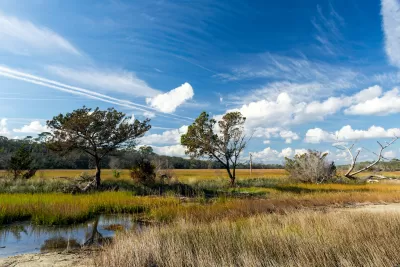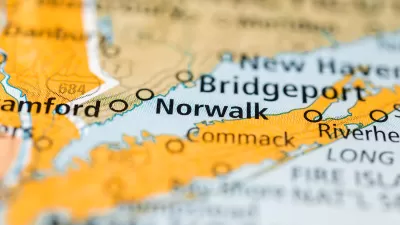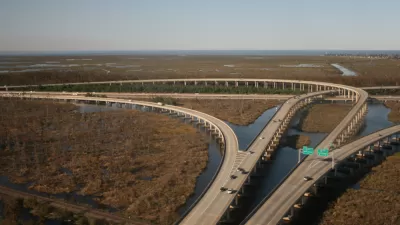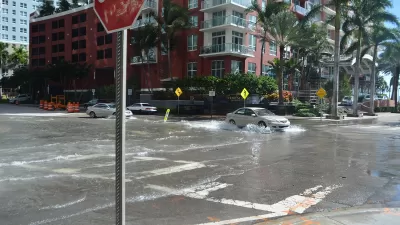When it comes to protecting the state from sea-level rise, Georgia is a step ahead of the rest thanks to a piece of legislation celebrating its 50th anniversary this year.

One hundred miles of coastal salt marsh along the Georgia coast is an integral part of the fabric of the state's identity, wildlife habitat, and natural landscape. Fifty years since a Georgia law was passed to protect the marsh, residents know that the 400,000 acres of tall grasses and shallow, muddy waters are appreciated and secure.
But this wasn't always the case, says Molly Samuel. "The marsh’s value and its beauty might be taken for granted now, but in the late-1960s, there was a proposal to mine Georgia’s salt marsh. To dig it up, then fill it in."
The legislation would later prove itself to be vital to the states future as sea-level rise threatening costal communities in the United States and beyond. Georgia's marshes make up about a third of salt marshland on the Eastern Seaboard, an indispensable buffer between land and sea.
Samuel recounts the history of Coastal Marshlands Protection Act. The desire to develop Georgia's 12 islands "largely owned by wealthy families that used them as vacation destinations" and a phosphate mining proposal turned out the masses during a state hearing on the matter.
Fifty years later, Georgia has a new beast to tackle. "On the Georgia coast, sea levels are getting higher by a little over a tenth of an inch a year, adding up to close to a foot a century," writes Samuel.
Experts say that as the sea-level rises, the marshlands will inch inland. "Georgia is working on ways to adapt to and prepare for increasingly high tides, asking local governments to plan for sea level rise, and protecting open space so that the marshes can keep moving inland," Samuel says.
FULL STORY: How Georgia Protected Its Salt Marsh 50 Years Ago, And Why That’s Important For The Future

Planetizen Federal Action Tracker
A weekly monitor of how Trump’s orders and actions are impacting planners and planning in America.

Vehicle-related Deaths Drop 29% in Richmond, VA
The seventh year of the city's Vision Zero strategy also cut the number of people killed in alcohol-related crashes by half.

Can We Please Give Communities the Design They Deserve?
Often an afterthought, graphic design impacts everything from how we navigate a city to how we feel about it. One designer argues: the people deserve better.

Southern Californians Survey Trees for Destructive Oak Pest
Hundreds of volunteers across five counties participated in the first Goldspotted Oak Borer Blitz, surveying oak trees for signs of the invasive beetle and contributing valuable data to help protect Southern California’s native woodlands.

Opinion: How Geothermal HVAC Lowers Costs, Improves Grid Resilience
Geothermal heating and cooling systems can reduce energy costs and dramatically improve efficiency.

Tenant Screening: A Billion-Dollar Industry with Little Oversight. What’s Being Done to Protect Renters?
Reports show that the data tenant screening companies use is often riddled with errors and relies on information that has no bearing on whether someone will be a good tenant.
Urban Design for Planners 1: Software Tools
This six-course series explores essential urban design concepts using open source software and equips planners with the tools they need to participate fully in the urban design process.
Planning for Universal Design
Learn the tools for implementing Universal Design in planning regulations.
Borough of Carlisle
Smith Gee Studio
City of Camden Redevelopment Agency
City of Astoria
Transportation Research & Education Center (TREC) at Portland State University
City of Camden Redevelopment Agency
Municipality of Princeton (NJ)





























